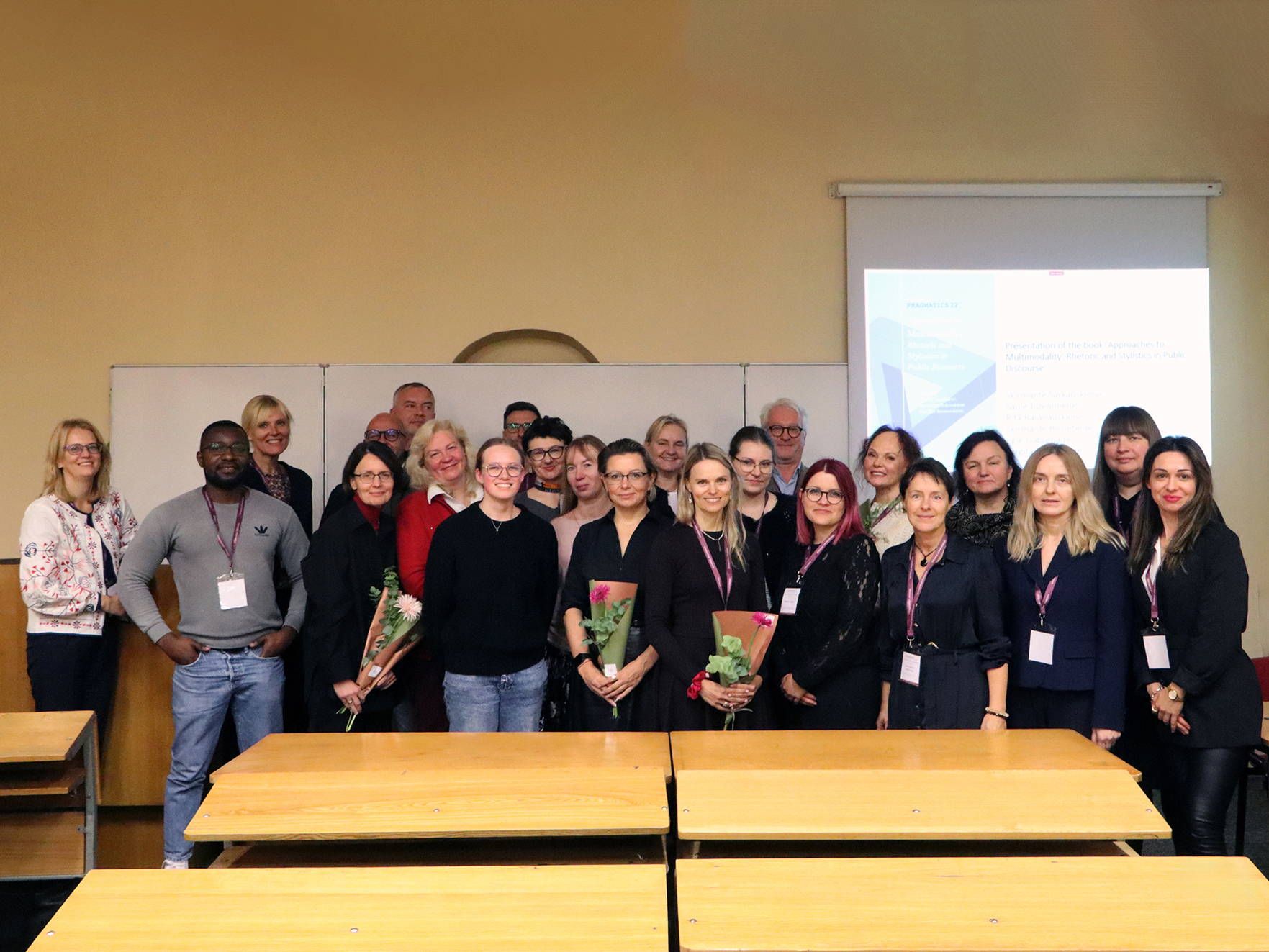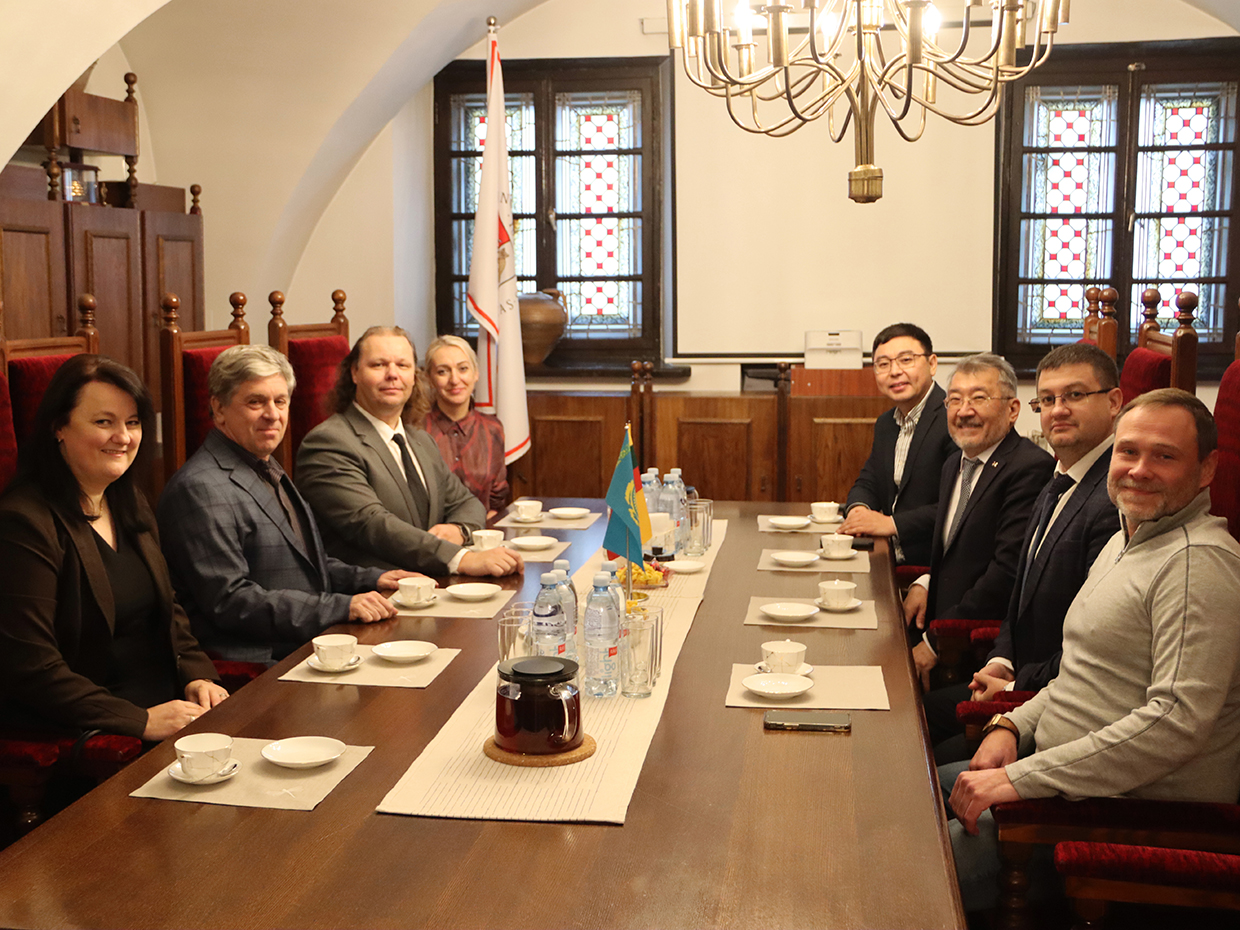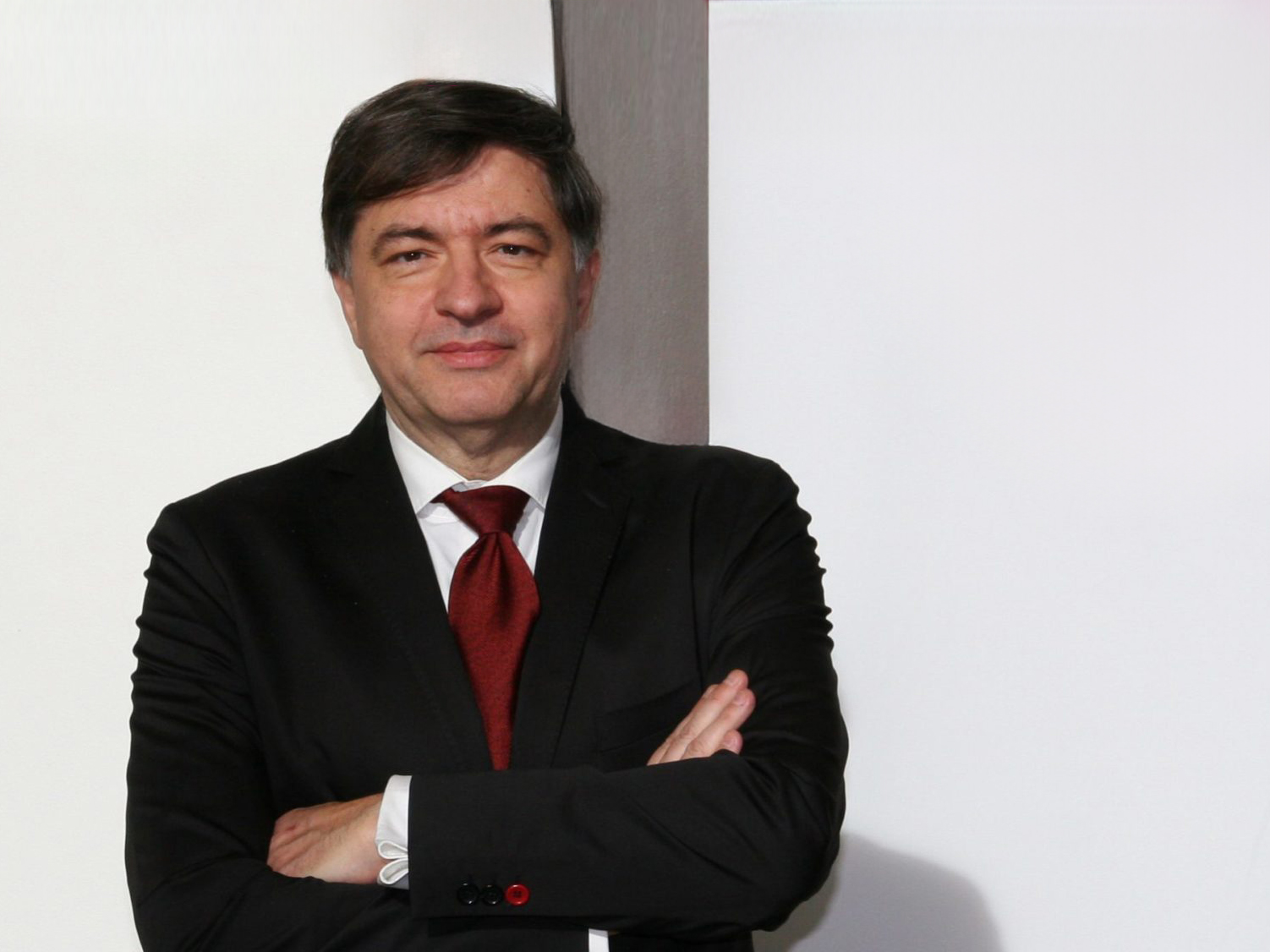 Europe is facing a significant shortage of cybersecurity professionals (about 4 million workers, World Economic Forum, 2024), but at the same time a huge talent pool is not being tapped. Despite the growing demand for IT professionals, only one in five ICT professionals is a woman and only a third of STEAM graduates are women, according to the 2023 Women in the Digital Sector report. This imbalance not only highlights the gender gap, but also reflects a missed opportunity to fill IT positions with talented women who could help address the shortage of cybersecurity skills and professionals.
Europe is facing a significant shortage of cybersecurity professionals (about 4 million workers, World Economic Forum, 2024), but at the same time a huge talent pool is not being tapped. Despite the growing demand for IT professionals, only one in five ICT professionals is a woman and only a third of STEAM graduates are women, according to the 2023 Women in the Digital Sector report. This imbalance not only highlights the gender gap, but also reflects a missed opportunity to fill IT positions with talented women who could help address the shortage of cybersecurity skills and professionals.
To address this situation, the workshop “Challenges of Women's Leadership in Cybersecurity” brought together IT experts and women leaders to explore the barriers that women face in entering and progressing in the cybersecurity field. Organised by CyberAgent, the event focused on strategies to promote greater inclusion and exploit women's vast potential in this vital sector and showcased examples of good practice.
The event was moderated by Saskia Brugman, Women4Cyber Strategic Partnership and Activities Coordinator.
Insights From the CyberAgent Project
Dr Renata Danielienė, CyberAgent project coordinator, shared insights from the latest cybersecurity skills gap survey conducted by the project. The study surveyed 190 education representatives from partner countries about the cybersecurity skills gap, curricula and the challenges of engaging women. In terms of women's challenges, respondents strongly felt that societal stereotypes and a lack of information about career opportunities are the main barriers for women entering the IT and cyber security field. In addition, respondents identified a lack of mentoring, role models and flexible working conditions as some of the main challenges.
“To contribute to solving these problems, we need to create a more inclusive environment and offer training on a variety of cybersecurity topics,” said Dr Renata Danielienė, “Mentoring programmes, female role models and support networks are essential to ensure that more women see cybersecurity as a viable career path.”
Dr Renata Danielienė invited to read the project report “Cybersecurity Change Agent Training Needs Assessment Report for SMEs,” which is available in English and the languages of the project partner countries, for a more comprehensive understanding of the research on the cybersecurity skills gap, identified challenges, and the underrepresentation of women.
The Global Perspective on Women's Role in Cybersecurity
Lessie Skiba, Director of Global Outreach and Partner Engagement at the Cyber Readiness Institute, focused on human behaviour and leadership in organizations during her presentation.
Lessie Skiba emphasized that women can contribute to shaping a cybersecurity culture within companies, as their skills often help create more flexible and inclusive environments. The speaker highlighted that women make up only 26% of the global cybersecurity workforce, but those who establish themselves in this field often retain their positions longer than men. She also emphasized that women have strong communication skills that can help change organizational behaviour and promote the adoption of cybersecurity practices, regardless of their technical background.
Lessie Skiba also introduced the Cyber Readiness Program, a free resource designed to help small and medium-sized enterprises implement key cybersecurity strategies, such as password management and fraud prevention. The Cyber Readiness Program is available in 4 languages, including English.
Spotlight on Spain: The Situation for Women in Cybersecurity
Jeimy Poveda, a privacy and digital rights specialist, Director of Dataseg.es, and board member of the Women in STEAM Empowerment Canarias organization from Spain, highlighted that women in this sector make up only 25% of all specialists and that change is happening very slowly – the proportion of women has increased by only 1% per year. Although STEM (Science, Technology, Engineering, and Mathematics) fields are becoming increasingly popular among women in Spain, many still do not choose cybersecurity as a career path.
Jeimy Poveda presented statistics related to women's participation in cybersecurity:
- only 18% of cybersecurity university graduates in Spain are women, indicating that the future workforce is still very disproportionate in terms of gender;
- only 6.9% of Spanish companies indicate that their cybersecurity workforce is equally distributed between men and women, while 46% of companies acknowledge that significantly more men than women work in this field.
Jeimy Poveda introduced the Canary Islands Women in STEAM Talent Map, a WISE Canarias project, which is dedicated to women working in STEM fields. The project aims to give women more visibility and help them be recognized as potential leaders. This initiative seeks to inspire women and girls to choose STEM careers by highlighting regional role models and leaders whose achievements could serve as an example.
Jeimy Poveda emphasized that this initiative is not just for the most famous or recognizable women – the project aims to showcase as many diverse women as possible who work in STEM and cybersecurity, including those who are just starting their careers.
Insights from the CyberAgent Project, Renata Danielienė
Women in Cyber: Navigating the Challenges of Cyber Readiness, Lessie Skiba
Spanish Women in Cybersecurity, Jeimy Poveda
Videos of seminar speakers: www.youtube.com/@CyberAgentEU>
Project coordinator: Kaunas Faculty of Vilnius University.
Project Leader Dr Renata Danielienė, Institute of Social Sciences and Applied Informatics.
Stay updated on future events and explore the full report on the CyberAgent project website: www.cyberagents.eu
Project consorcium: VU Kauno Fakultetas/VU Kaunas Faculty, Women4Cyber Foundation, Olemisen Balanssia ry, Prios, HackerU Polska, EVM, TIMTAL, GCM
#EUProject #CyberAgent #CyberAgentEU #Innovation #Cybersecurity #ErasmusPlus #Cybersecurity #SMEs
Funded by the European Union. Views and opinions expressed are however those of the author(s) only and do not necessarily reflect those of the European Union or the European Education and Culture Executive Agency (EACEA). Neither the European Union nor EACEA can be held responsible for them.
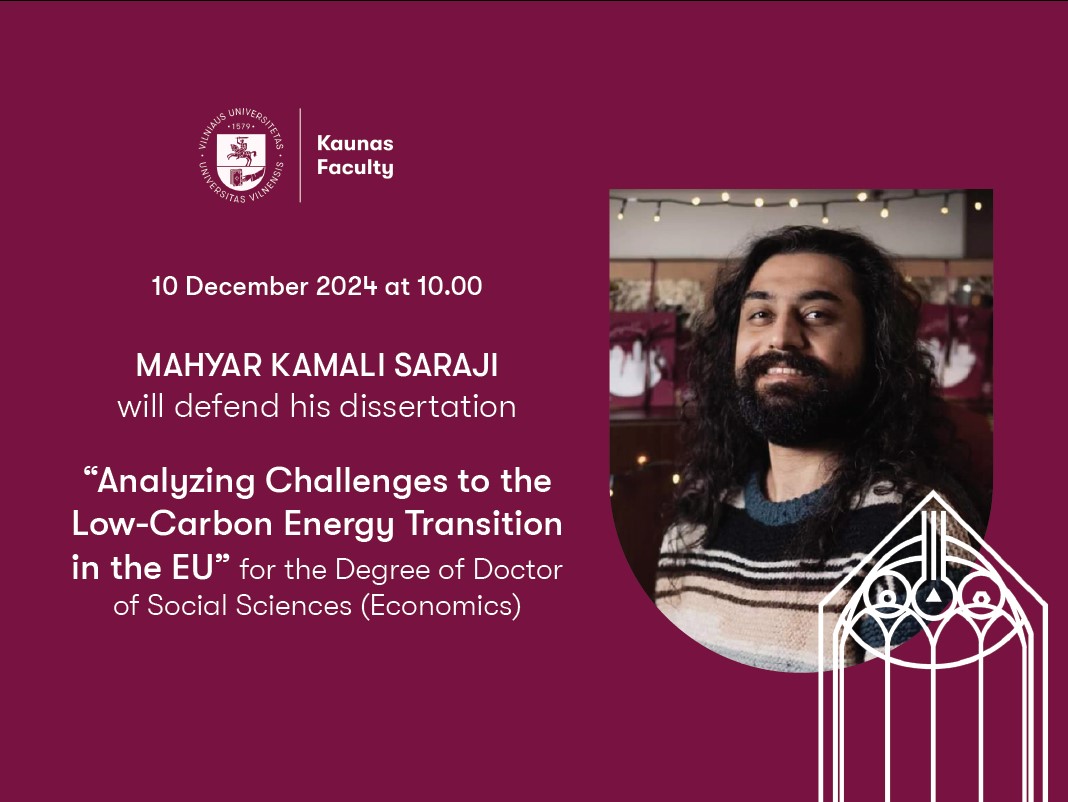 The doctoral student of the Institute of Social Sciences and Applied Informatics at VU Kaunas Faculty Mahyar Kamali Saraji (social sciences, economics (S 004)) will defend his PhD thesis “Analyzing Challenges to the Low-Carbon Energy Transition in the EU”.
The doctoral student of the Institute of Social Sciences and Applied Informatics at VU Kaunas Faculty Mahyar Kamali Saraji (social sciences, economics (S 004)) will defend his PhD thesis “Analyzing Challenges to the Low-Carbon Energy Transition in the EU”. “GAISO project is an important step not only in the field of cyber security, but also in the academic context of scientific research, when the systems that allow easier identification of cyber threats and more effective management of them are being developed. It is exciting that the researchers of the Institute of Social Sciences and Applied Informatics can contribute to solving important contemporary problems in scientific practice with their knowledge and research,” says Assist. Dr Indrė Ščiukauskė, the director of the Institute of Social Sciences and Applied Informatics, Vilnius University (VU) Kaunas Faculty. The research project “Research on Cyber Resilience Through Application of Generative Artificial Intelligence in Chief Information Security Officer Operations – GAISO” is financed by the Research Council of Lithuania.
“GAISO project is an important step not only in the field of cyber security, but also in the academic context of scientific research, when the systems that allow easier identification of cyber threats and more effective management of them are being developed. It is exciting that the researchers of the Institute of Social Sciences and Applied Informatics can contribute to solving important contemporary problems in scientific practice with their knowledge and research,” says Assist. Dr Indrė Ščiukauskė, the director of the Institute of Social Sciences and Applied Informatics, Vilnius University (VU) Kaunas Faculty. The research project “Research on Cyber Resilience Through Application of Generative Artificial Intelligence in Chief Information Security Officer Operations – GAISO” is financed by the Research Council of Lithuania.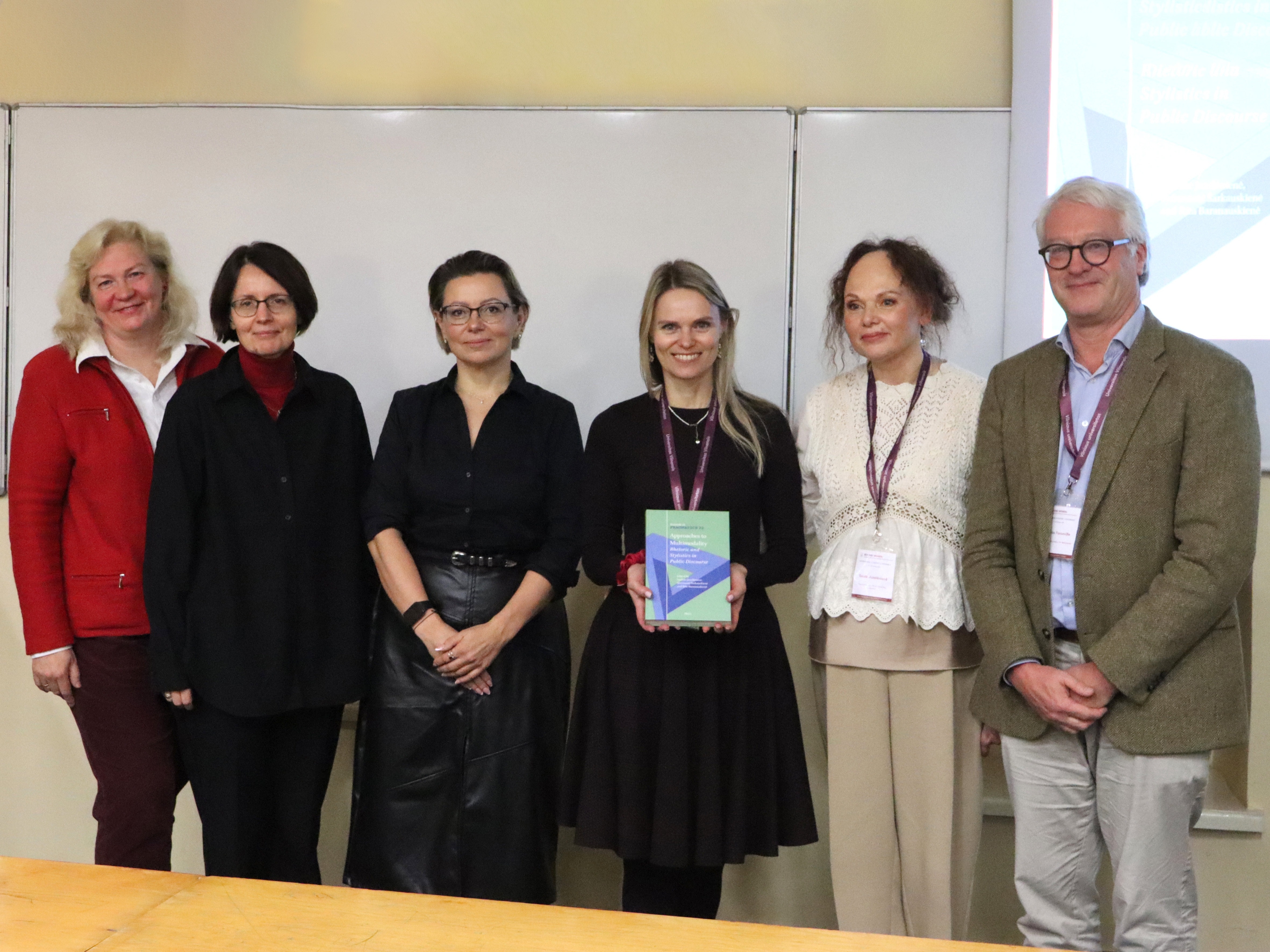
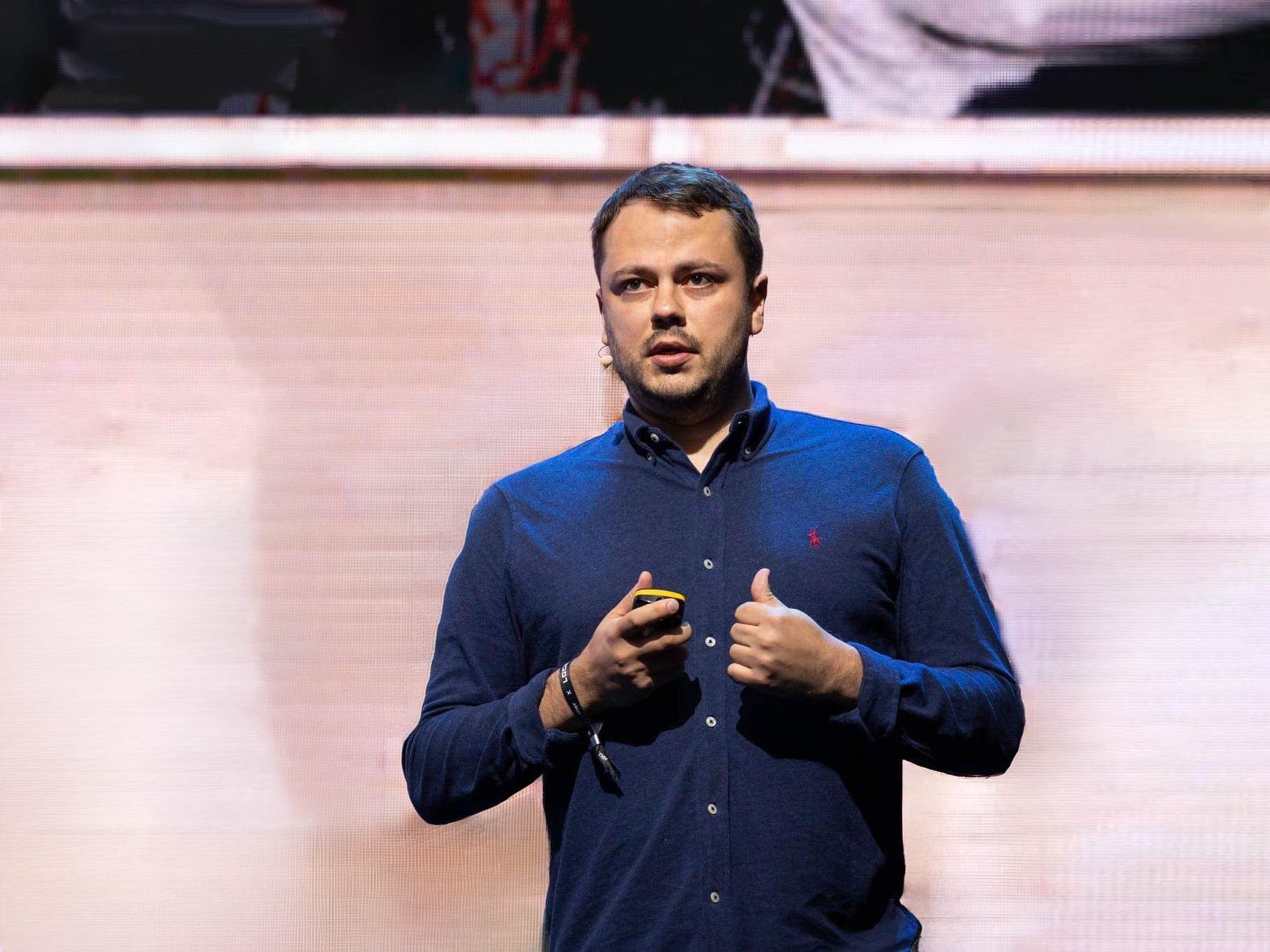
 Europe is facing a significant shortage of cybersecurity professionals (about 4 million workers, World Economic Forum, 2024), but at the same time a huge talent pool is not being tapped. Despite the growing demand for IT professionals, only one in five ICT professionals is a woman and only a third of STEAM graduates are women, according to the 2023 Women in the Digital Sector report. This imbalance not only highlights the gender gap, but also reflects a missed opportunity to fill IT positions with talented women who could help address the shortage of cybersecurity skills and professionals.
Europe is facing a significant shortage of cybersecurity professionals (about 4 million workers, World Economic Forum, 2024), but at the same time a huge talent pool is not being tapped. Despite the growing demand for IT professionals, only one in five ICT professionals is a woman and only a third of STEAM graduates are women, according to the 2023 Women in the Digital Sector report. This imbalance not only highlights the gender gap, but also reflects a missed opportunity to fill IT positions with talented women who could help address the shortage of cybersecurity skills and professionals.
